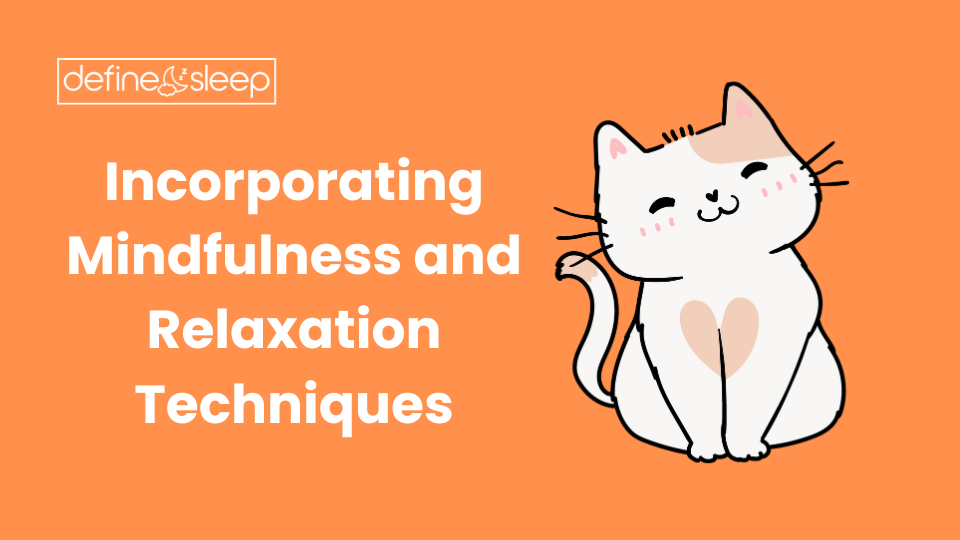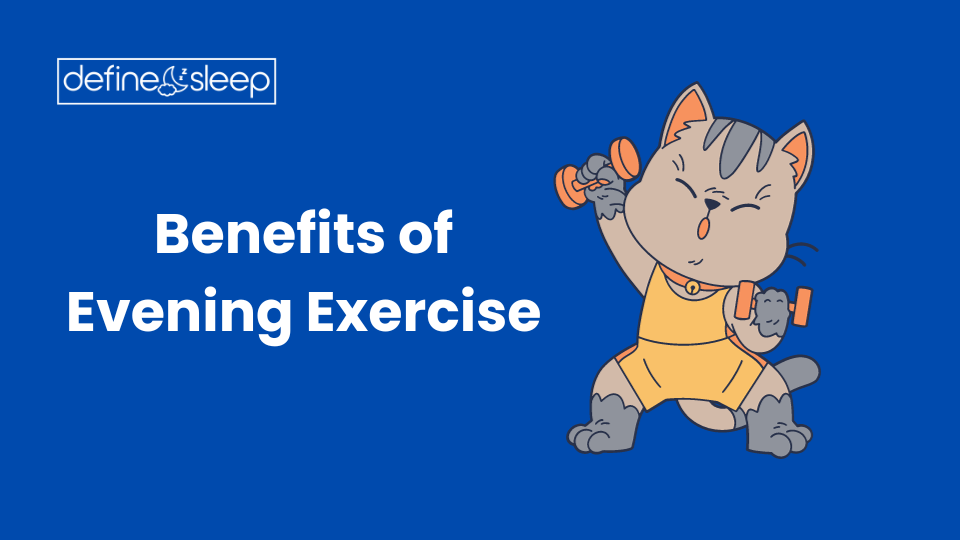A good night’s sleep often takes a backseat in the hustle and bustle of our daily lives. However, the importance of quality sleep cannot be overstated. A well-structured bedtime routine can significantly affect your sleep quality and overall well-being. Let’s explore some practical tips to hack your bedtime routine for better sleep.
Creating a Relaxing Environment

Choose the Right Mattress and Pillows
Start by evaluating your mattress and pillows. The right mattress can make a world of difference in your sleep quality. Consider your sleeping position and any specific needs, such as back support or pressure point relief. Invest in pillows that provide proper neck support, enhancing your overall comfort.
Optimize Room Temperature and Lighting
A relaxed, dark, and quiet environment promotes better sleep. Adjust your room temperature to a comfortable level, typically between 60-67°F (15-20°C). Use blackout curtains to block out external light and minimize disturbances. Dim the lights an hour before bedtime to signal your body that it’s time to wind down.
Establishing a Consistent Sleep Schedule

Set a Regular Bedtime
Our bodies thrive on routine, and establishing a consistent sleep schedule is crucial. Aim to go to bed and wake up simultaneously every day, even on weekends. This helps regulate your body’s internal clock, improving the quality of your sleep over time.
Limit Naps
While short naps can be refreshing, excessive daytime napping can interfere with nighttime sleep. If you need to nap, keep it short (around 20-30 minutes) and avoid napping too close to bedtime.
Incorporating Mindfulness and Relaxation Techniques

Practice Deep Breathing
Deep breathing exercises can help calm your mind and relax your body. Incorporate deep breathing techniques into your bedtime routine to reduce stress and promote a sense of calm. Inhale slowly through your nose, hold for a few seconds and exhale through your mouth. Repeat several times.
Lack of Emotional Control: Addressing Past Trauma and Physical Abuse
Our emotional state significantly affects our ability to relax and unwind before bedtime. Individuals who have experienced physical abuse or past trauma may struggle with dynamic control, leading to heightened anxiety and difficulty falling asleep.
Acknowledging and addressing these emotional challenges is crucial in improving your bedtime routine. Consider seeking support from a mental health professional who can provide guidance and coping strategies tailored to your needs. Engaging in therapeutic practices, such as counseling or cognitive-behavioral therapy, can improve emotional regulation and sleep.
Limiting Stimulants Before Bed
Watch Your Diet
What you eat and drink can impact your sleep. Avoid heavy meals, caffeine, and nicotine close to bedtime. Instead, opt for a light snack if you’re hungry. Chamomile tea or warm milk are excellent choices known for their sleep-inducing properties.
Limit Screen Time
The blue light emitted by screens can interfere with the production of the sleep hormone melatonin. Aim to turn off electronic devices at least an hour before bedtime. Engage in relaxing activities like reading a physical book or practicing gentle stretches to prepare your body for sleep.
Engaging in Physical Activity
Establish a Pre-Sleep Exercise Routine
In our quest for a better night’s sleep, we often underestimate the impact of physical activity on our sleep quality. Regular exercise benefits our overall health and can significantly enhance our ability to achieve a restful night’s sleep. Let’s explore how engaging in physical activity can become valuable to your bedtime routine.
Establishing a Pre-Sleep Exercise Routine
Timing matters when it comes to incorporating exercise into your bedtime routine. While it’s well-known that regular physical activity contributes to better sleep, engaging in vigorous exercise too close to bedtime can have the opposite effect, leaving you energized rather than relaxed.
Consider establishing a pre-sleep exercise routine that focuses on activities known for their calming and stress-reducing effects. Opt for gentle exercises such as yoga, Pilates, or light stretching. These activities promote physical well-being, help release tension, and prepare your body for a peaceful night’s sleep.
Benefits of Evening Exercise

1. Temperature Regulation:
Physical activity increases your body temperature, and the subsequent cooldown after exercise can promote feelings of drowsiness. As your body temperature drops post-exercise, it signals your brain that it’s time to wind down.
2. Stress Reduction:
Exercise is a natural stress reliever. Engaging in physical activity prompts the release of endorphins, which act as natural mood lifters. Reduced stress levels contribute to a more relaxed mental state conducive to sleep.
3. Improved Sleep Quality:
Studies have shown that individuals who engage in regular physical activity experience improvements in both the duration and quality of their sleep. Exercise can help regulate sleep patterns and enhance the overall therapeutic nature of your sleep.
Choosing the Right Activities
Not all exercises are created equal when it comes to promoting better sleep. While high-intensity workouts are fantastic for overall health, they are best enjoyed earlier. For your pre-sleep routine, opt for activities focusing on flexibility, balance, and relaxation.
Consider the following activities:
- Yoga: Known for emphasizing breath control and gentle movements, yoga is an excellent choice for promoting relaxation.
- Pilates: This low-impact exercise method focuses on core strength and flexibility, making it ideal for a pre-sleep routine.
- Stretching: Gentle stretches can alleviate muscle tension, helping your body unwind before bedtime.
Consistency is Key
As with any aspect of your bedtime routine, consistency is critical to reaping the full benefits of pre-sleep exercise. Aim to engage in physical activity simultaneously each evening, allowing your body to establish a rhythm that aligns with your natural circadian cycle.
Incorporating physical activity into your bedtime routine can be a game-changer in your quest for a better night’s sleep. Whether you prefer the meditative qualities of yoga or the gentle toning of Pilates, finding an activity that suits your preferences can make bedtime exercise an enjoyable and sustainable habit. So, lace up those sneakers, roll out your yoga mat, and embrace the sleep-boosting power of physical activity in your nightly routine. Sweet dreams await!
Conclusion

Optimizing your bedtime routine is a proactive step toward ensuring a restful night’s sleep. Each aspect plays a crucial role, from creating a relaxing sleep environment to addressing emotional challenges. Remember, the key is consistency. Implement these hacks gradually, allowing your body to adjust and embrace the benefits of a well-crafted bedtime routine for improved sleep and overall well-being. Sweet dreams!
FAQ

1Q: Can changing my mattress and pillows improve my sleep quality?
Yes, selecting the right mattress and pillows that suit your sleeping preferences and needs can significantly enhance your comfort and, consequently, improve the overall quality of your sleep.
2Q: How long does a consistent sleep schedule take to impact my sleep positively?
Establishing a consistent sleep schedule takes time, but you may start experiencing positive changes within a few weeks. Sticking to your plan, even on weekends, is essential to allow your body to adjust fully.
3Q: Can exercise close to bedtime negatively affect my sleep?
Doing intense exercise right before bedtime can raise your body temperature and energy levels, potentially hindering sleep. Consider adopting a pre-sleep exercise routine with calming activities like yoga or stretching.
4Q: Is it necessary to address emotional challenges, such as past trauma, for better sleep?
Yes, emotional well-being is closely linked to sleep quality. Individuals dealing with emotional challenges, including past trauma, may benefit from seeking support from mental health professionals to improve dynamic control and enhance sleep.
5Q: How can I create a relaxing sleep environment?
To create a relaxing sleep environment, focus on room temperature, lighting, and noise levels. Use blackout curtains, set a comfortable room temperature, and minimize external disturbances for an optimal sleep setting.
6Q: Can I still enjoy screen time before bed and ensure a good night’s sleep?
Yes, certain foods can promote better sleep. Avoid heavy meals close to bedtime and choose sleep-inducing snacks like chamomile tea or warm milk. Additionally, maintaining a well-balanced diet can positively impact overall sleep quality.
Help From Chatgpt 4




